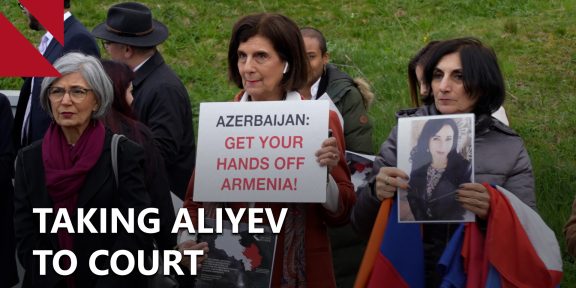 Foreign Minister Nalbandyan meets with OSCE Minsk Group Co-Chairs.
Foreign Minister Nalbandyan meets with OSCE Minsk Group Co-Chairs.
During a working visit to Basel, Armenia’s Minister of Foreign Affairs Edward Nalbandyan met with the OSCE Minsk Group Co-Chairs, Ambassadors Igor Popov, James Warlick, Pierre Andrieu and Ambassador Andrzej Kasprzyk, the Personal Representative of the OSCE Chairperson-in-Office on December 3.
According to the Foreign Ministry, Nalbandyan discussed the ongoing ceasefire violations along the Karabakh-Azerbaijan Line of Contact and the Armenia-Azerbaijan state border, in particular the latest incident on November 12 when a Karabakh Defense Army helicopter was shot down during a training flight resulting in the death of three pilots, and the intensification of rhetoric and the statements coming from Baku distorting the essence and context of the negotiations.
As has become customary during these periodic meetings, the sides continued discussions on how to move forward to find a peaceful resolution of the Nagorno Karabakh conflict. Nalbandyan reaffirmed Armenia’s willingness to work in the regard.
On December 2, Foreign Minister Nalbandyan had attended the “Resolute Support Mission” Foreign Ministers’ meeting, which was held at NATO headquarters in Brussels, and which was dedicated to the launch of the mission of providing security to Afghanistan.
On December 4, the Heads of Delegation of the OSCE Minsk Group Co-Chair countries, Foreign Minister of Russia Sergey Lavrov, US Secretary of State John Kerry, and State Secretary for European Affairs of France Harlem Desir released a statement where they say that they “remain strongly committed to a peaceful resolution of the Nagorno-Karabakh conflict,” adding that there is no military solution to the conflict and calling on sides to refrain from violence. “We regret the upsurge in violence in the past year along the Line of Contact and the Armenia-Azerbaijan border. Military actions in July and August resulted in a significant loss of life, raised tensions and deepened mistrust between the sides. The sides must take additional actions to reinforce the ceasefire of 1994 and create a more favorable atmosphere for advancing peace talks.”
They stated that the shooting down of the military helicopter on November 12 was “an avoidable tragedy that underscored the importance of measures by the sides to reduce tensions, restore trust, and avoid future incidents. We appeal to all sides to demonstrate restraint to prevent further escalation. We also call on them to settle humanitarian issues in the spirit of the Astrakhan statement of October 2010 of the Presidents of Armenia, Azerbaijan and the Russian Federation.”
They also noted that they hope the sides will intensify dialogue in the coming year and welcomed the three meetings between the presidents of Armenia and Azerbaijan in 2014 in Sochi, Newport and Paris. “It is time for the sides to overcome disagreements, restore confidence, and honour their commitment to enter into a negotiating process that can result in a settlement. They are expected to acknowledge that the basis for a comprehensive settlement are the elements and principles outlined in the joint statements by the Presidents of Russia, the United States, and France, especially those that were discussed during the last summit in Paris,” it says in the statement and also that negotiations to come to a comprehensive peace agreement should start as soon as possible.
In closing, the Heads of Delegation maintain that while they are prepared to work with Armenia and Azerbaijan to reach a lasting settlement, it is the sides that must bear the responsibility to end the Nagorno Karabakh conflict.















